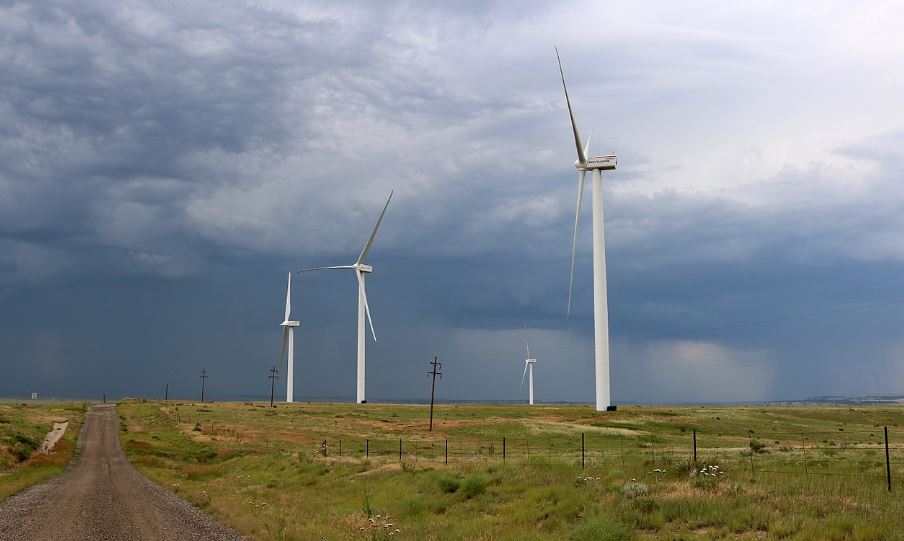Ireland is a high cost economy and needs to think about where the markets are. If the state can get society into the wind and solar energy industries it will make it a lot easier – for all concerned – to keep the process moving.
These were the sentiments expressed by Paul Kenny, chief executive of the Tipperary Energy Agency – one of the partners in the Energy in Agriculture conference which is taking place next month.
The event will be held on Tuesday, August 20, at Gurteen Agriculture College and is a joint initiative between Teagasc, Tipperary County Council, the Irish Farmers’ Association (IFA), Tipperary Energy Agency and Gurteen Agricultural College.
It was launched by the Minister for Agriculture, Food and the Marine, Michael Creed, on the farm of Michéal Looney in Macroom, Co. Cork, on Thursday, July 18, and Kenny spoke to AgriLand following the conclusion of proceedings on the day.
‘Enemy of the people’
Kenny, meanwhile, pointed to renewable energies like wind and solar and highlighted how wind energy – in particular – can work in a sustainable way in Ireland.
There was a really interesting study done by NUIG [National University of Ireland, Galway] recently.
He added: “The university rang 2,000 homes within 4km, 2km and 1km of wind farms and asked the people there what they thought of them.
“The results overwhelmingly supported wind farms – 79% of respondents were ‘substantially in favour’ of them. Now, having said that, there are cases where wind turbines do impact people negatively – we know this.
“We also know that some of what the wind industry has done amounts to very poor practice, but the vast majority of wind farms in this country are profitable, and are producing more energy than they cost to build.
One of the problems is – there is a lot of negative and inaccurate information out there and I would say that is coming from the oil and gas industry – the money is flowing from the people who will lose out.
“If we want to pick an enemy of the people – it is the oil and gas industry, not the wind industry.
“However, that said, there are places where wind turbines should not be; there are noise limits that need to be adhered to – what we need in Ireland is a robust, independent national study on this.”
The real issues
The energy expert then pointed to what the ‘real and genuine issue’ is when it comes to wind energy generation in Ireland.
An external wind company comes into a local area; that company invests €100 million and makes huge profits from the energy bill of the people living in that area.
He continued: “Yet the people living in the area are not allowed to participate in that industry – that is what the problem is.”
Kenny went on to say that the importance of introducing schemes to deal with this particular aspect cannot be highlighted enough. He also pointed to the onus of responsibility that is on Ireland – within a European and global context – “to get this right”.
“The new Renewable Electricity Support Scheme (RESS) is going to force renewable energy developers to offer the people within 5km or 10km a share at the same value as the developer,” he continued.
Now, if we get that policy right what will happen is that people living close to wind farms will become part of the industry.
“They will make money from that industry and it will pay for the future of the community and for other aspects such as their children’s education.
“More importantly, though, there will be [political] votes in the energy transition and there will be votes in renewable energy and that will engage politicians to do what is necessary and provide an opportunity for real reform.”
Competition in the industry
Meanwhile, Kenny says that moving forward stems back to a European decision in 2012 that focuses on ‘competition’ in the industry.
In 2017, the auctions started around Europe and while we are a little bit behind the curb on this in Ireland, when auctions begin here, onshore wind will get very cheap because it has to be competitive.
He added: “What will happen then is wind will become cheaper than fossil fuels in Ireland. Right now it’s about the same price but over the next 10 years the cost for the consumer will decrease by a substantial amount.”
The energy expert also says that – at the moment – onshore wind energy is cheaper than onshore solar energy – so if Ireland does an auction and the auction is technology neutral, the country will have wind – “we will not have solar”.
What the state needs to decide now is how to get the balance between wind and solar energy – there will be a solar scheme for businesses next year.
“There is no doubt that it is going to be a challenge to repair the damage that has been done by the wind industry, but the Government only has a few levers to pull and if they would just do it, then Ireland could just get on with it – and do what it has to do in relation to all of this.”
